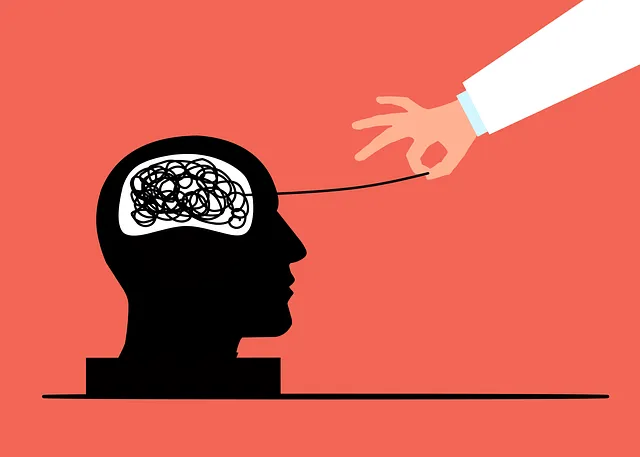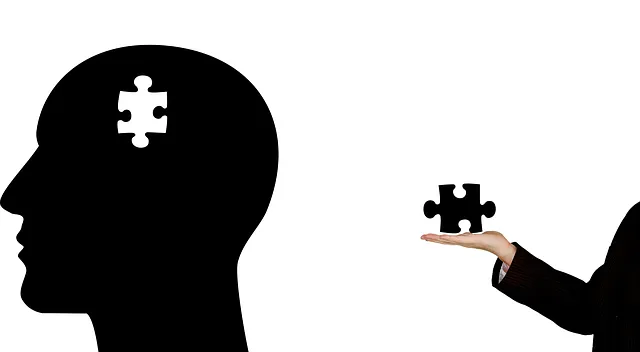Mental health stigma, rooted in culture and history, hinders support-seeking. Media portrays mental illness, influencing public understanding either negatively or positively. Golden Kaiser Permanente (GKP) behavioral health services advocate for destigmatization through diverse, accurate media representations, self-care practices, and compassion cultivation. They offer tailored solutions, excel in trauma support, and consult with experts to ensure empathetic storytelling. GKP promotes cultural sensitivity, complex narratives, mindfulness, and balanced portrayals in media to foster understanding, reduce stigma, and encourage open conversations about mental health.
Mental illness representation in media significantly influences societal stigma and understanding. This article explores how media shapes public perception, delving into successful initiatives like Golden Kaiser Permanente’s behavioral health services. We analyze strategies for accurate, empathetic portrayal, emphasizing diversity and inclusion in media narratives. By examining these aspects, we aim to foster more nuanced representations that challenge mental health stigma and promote support. Discover how media can revolutionize perceptions, akin to a vibrant tapestry woven with care.
- Understanding Mental Health Stigma in Society
- The Role of Media in Shaping Public Perception
- Golden Kaiser Permanente: A Behavioral Health Approach
- Strategies for Accurate and Empathic Portrayal
- Promoting Diversity and Inclusion in Media Narratives
Understanding Mental Health Stigma in Society

Mental health stigma is a pervasive issue within society, often acting as a barrier to individuals seeking help and support for their struggles. This stigmatization, which can be deeply rooted in cultural beliefs and historical narratives, presents significant challenges when portrayed in media. The portrayal of mental illness can either perpetuate harmful stereotypes or offer a platform for increased understanding and empathy. For instance, Golden Kaiser Permanente’s behavioral health services emphasize the importance of destigmatizing mental health issues by presenting accurate, compassionate, and diverse representations in media.
By integrating self-care practices and compassion cultivation techniques into their programming, these services aim to foster an environment where individuals feel empowered to discuss their experiences openly. Recognizing that stress management is a crucial component of overall well-being, Golden Kaiser Permanente encourages proactive approaches to mental health. This includes promoting accessible resources, normalizing conversations around mental illness, and encouraging the adoption of self-care practices that can help mitigate societal stigma from both personal and collective perspectives.
The Role of Media in Shaping Public Perception

Media plays a pivotal role in shaping public perception about mental illness, influencing how society understands and responds to various behavioral health challenges. Often, media portrayals can either perpetuate harmful stereotypes or offer valuable insights that foster empathy and understanding. The representation of mental illness in movies, television shows, literature, and news articles significantly contributes to the broader societal dialogue.
For instance, initiatives by Golden Kaiser Permanente behavioral health services highlight effective empathy-building strategies and promote awareness about diverse emotional healing processes. By showcasing these efforts, media can encourage open conversations about mental well-being, reduce stigma, and inspire confidence in seeking support. This, in turn, can lead to more compassionate public responses and better access to resources like those provided by Kaiser Permanente for individuals navigating their behavioral health journeys.
Golden Kaiser Permanente: A Behavioral Health Approach

Golden Kaiser Permanente stands out for its comprehensive and holistic approach to behavioral health services. This healthcare provider recognizes that addressing mental illness requires more than just treatment; it involves fostering a supportive environment that encourages positive thinking and self-care routine development for better mental health. By integrating various therapeutic modalities, Golden Kaiser Permanente offers tailored solutions to meet the unique needs of each individual.
One of their notable strengths lies in providing trauma support services, acknowledging the profound impact traumatic experiences can have on one’s mental well-being. Through specialized programs and a dedicated team of professionals, they offer safe spaces for individuals to process and heal from past traumas, contributing significantly to their overall mental health recovery journey.
Strategies for Accurate and Empathic Portrayal

To ensure accurate and empathic representation of mental illness in media, creators should strive for authenticity and sensitivity. This involves consulting with experts like those from Golden Kaiser Permanente behavioral health services to understand real-life experiences and challenges associated with various mental health conditions. Incorporating diverse narratives that reflect the complexity and nuances of these issues is crucial, moving away from simplistic or stereotypical portrayals. By showcasing characters’ emotional healing processes and incorporating tools such as mindfulness meditation, media can foster a deeper understanding and reduce stigma.
Cultural sensitivity in mental healthcare practice is another vital aspect to consider. Representing a spectrum of cultural backgrounds and experiences ensures that diverse audiences see themselves reflected accurately. This inclusive approach not only challenges existing narratives but also encourages viewers from marginalized communities to seek support or identify with characters’ journeys. Through thoughtful storytelling, media can contribute to promoting emotional healing and creating a more compassionate society.
Promoting Diversity and Inclusion in Media Narratives

In an era where media narratives have a profound impact on societal perceptions, promoting diversity and inclusion is more vital than ever. The representation of mental illness in these stories plays a crucial role in shaping public understanding and reducing stigma. Golden Kaiser Permanente behavioral health services recognize this challenge and are at the forefront of advocating for balanced and authentic portrayals. By including a wide range of experiences, backgrounds, and cultural identities, media can foster empathy and promote more nuanced discussions around mental health. This approach encourages viewers to see beyond stereotypes and fosters a deeper understanding of the complexities surrounding various mental health conditions.
One of the powerful strategies to achieve this is by employing Empathy Building Strategies within these narratives. Portraying characters with mental illnesses as three-dimensional individuals, with unique personalities and stories, can challenge stereotypes and promote positive thinking. Additionally, incorporating scenes that highlight the journey towards self-awareness exercises and recovery can inspire hope and encourage viewers to seek support if needed. Such representations have the potential to revolutionize how we discuss mental health, creating a more inclusive and supportive environment in media and society at large.
Media plays a pivotal role in shaping public understanding of mental illness, often perpetuating or challenging societal stigma. By adopting more accurate and empathetic portrayals, media can foster a landscape where diverse narratives are celebrated. Taking cues from initiatives like Golden Kaiser Permanente’s behavioral health services, which promote holistic care and reduce stigma, media organizations can contribute to a more inclusive society. Strategies such as employing diverse talent behind the scenes, consulting with mental health experts, and centering the experiences of individuals living with mental illness can significantly impact positive change. Through these efforts, we can strive for a media environment that not only reflects but also enhances our understanding of mental health.






